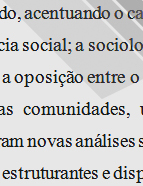

................................
Other historians with relevant works were Virgínia de Bivar Robertes Rau (1907-1973), with a PhD in historical and philosophical sciences (1947), whose work A Casa dos Contos (The House of Tales), 1951, marked a new methodology in the use of financial sources. Gastão de Melo de Matos (1890-1971), from the National Union, who was closely linked to Marcelo Caetano, devoted himself to the study of the military institution and was responsible for several entries on the army and navy in the DHPJS. Canon Avelino de Jesus da Costa (1908/2000) and his doctoral thesis (1959) on Bishop Pedro and the organisation of the diocese of Braga, 2 vols, to which is added the Álbum de Paleografia e Diplomática Portuguesas (Album of Portuguese Palaeography and Diplomacy). Maria Adelaide Salvador Marques devoted herself to the censorship board, “The Royal Censorship Board and national culture, aspects of Portuguese cultural geography in the 18th century” (1963), in which she describes the organisation, functioning, officials, powers, mission and direction of minor studies. Franz-Paul de Almeida Langhans (1908/1986), private secretary to Oliveira Salazar (1951-1961), then a member of the FCG, published Estudos de Direito (Studies in Law, 1967), a collection of articles some related to the history of institutions, A Casa dos Vinte e quatro de Lisboa, subsídios para a sua História (The House of the Twenty-Four of Lisbon, subsidies for its history, (1948); As Posturas (1938); As Corporações dos Ofícios Mecânicos, Subsídios para sua história (The Mechanics’ Guilds, Contributions to their History), 2 vols; História das Instituições de Direito Público (History of Public Law Institutions), Fundamentos Jurídicos da Monarquia Portuguesa (Legal Foundations of the Portuguese Monarchy) (1950) and A administração municipal de Lisboa durante a primeira dinastia (The municipal administration of Lisbon during the first dynasty) (1951), in addition to his intense collaboration with the DHPJS with entries on various political and administrative institutions. Alfredo Pimenta (1882-1950) with Municipal Freedoms in the 15th Century (1944) and The Ancient Courts in Portugal in Subsidies for the History of Portugal, Lisbon (1937); José Pinto Loureiro (1885/?) and Administração Coimbrã no século XVI (Coimbra Administration in the 16th Century) (1942) and A Casa dos Vinte e Quatro de Coimbra (The House of the Twenty-Four of Coimbra) (1937); José H.
This work is financed by national funds through FCT - Foundation for Science and Technology, I.P, in the scope of the projects UIDB/04311/2020 and UIDP/04311/2020.
